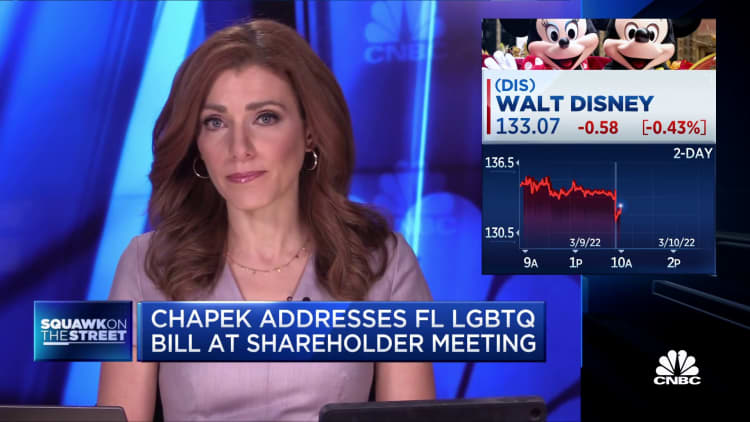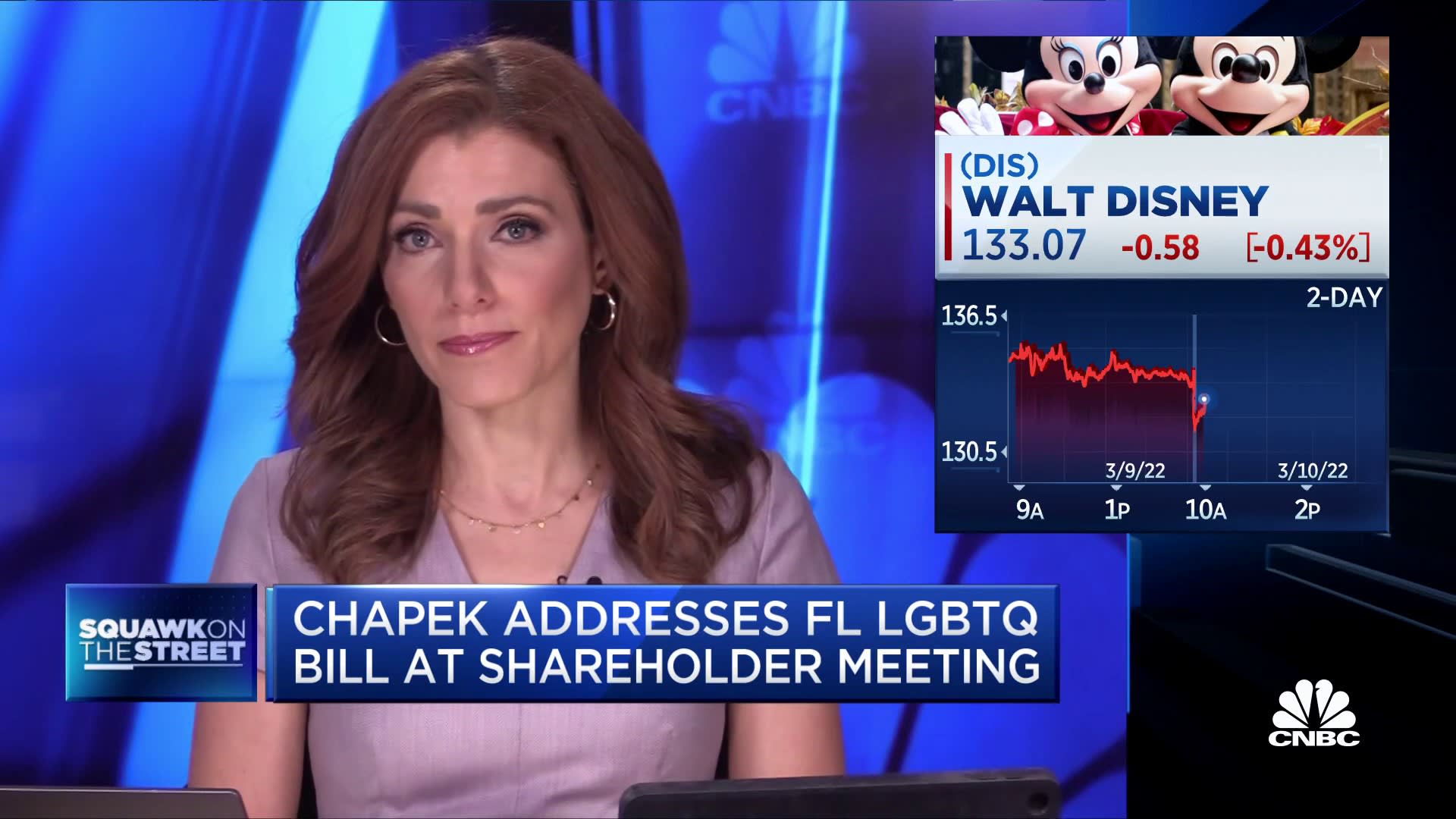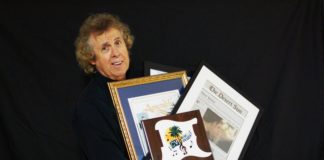Bob Chapek, CEO of Walt Disney
Patrick T. Fallon | Bloomberg | Getty Images
Disney‘s CEO said Friday the company is ceasing its political donations in Florida due to the state’s so-called “Don’t Say Gay” bill, and he apologized for the company’s previous silence on the issue.
“You needed me to be a stronger ally in the fight for equal rights and I let you down,” CEO Bob Chapek wrote in a statement to colleagues and the LGBTQ+ community published Friday. “I am sorry.”
The statement doubled down on comments he made supporting the LGBTQ+ community during the company’s annual shareholder meeting Wednesday.

Chapek and the Walt Disney Company faced pressure this week for not publicly opposing the Parental Rights in Education bill in Florida. The legislation, which was passed earlier this week, forbids instruction on sexual orientation and gender identity in public schools for kindergarten through third grade.
It has been dubbed the “Don’t Say Gay” bill and criticized by some who believe the bill could do harm to already marginalized populations.
Disney, which operates four theme parks and dozens of hotels in Orlando, Florida, was targeted by activists after it was discovered that the company provided financial support for some of the bill’s backers in the state legislature.
The company reportedly donated around $300,000 to these backers over the last two years, according to a report from Popular Information, an online news site that tracks and reports corporate political contributions.
Chapek said the company is reviewing its approach to advocacy and will donate $5 million to organizations, including the Human Rights Campaign, that work to protect LGTBQ+ rights.
“I missed the mark in this case but am an ally you can count on — and I will be an outspoken champion for the protections, visibility, and opportunity you deserve,” Chapek said.
The entertainment giant has made diversity and inclusion a major part of its corporate policies and storytelling across theme parks, movies and TV shows. Many felt its silence on the bill was a statement of its own.
“Our employees see the power of this great company as an opportunity to do good,” Chapek said. “I agree. Yes, we need to use our influence to promote that good by telling inclusive stories, but also by standing up for the rights of all.”
Chapek told shareholders Wednesday that he contacted Florida Gov. Ron DeSantis and sought to meet with him to discuss the bill. DeSantis’ office confirmed that Chapek had called but said no meeting had been scheduled yet, according to a statement provided to CNBC.
DeSantis, a Republican, also doubled down. Speaking to supporters in Boca Raton on Thursday, DeSantis said there was a “zero” chance he was going to reverse his position on the bill, according to a video obtained by Fox News.
“You have companies, like at Disney, that are going to say and criticize parents’ rights, they’re going to criticize the fact that we don’t want transgenderism in kindergarten in first-grade classrooms,” he said.
“If that’s the hill they’re going to die on, then how do they possibly explain lining their pockets with their relationship from the Communist Party of China? Because that’s what they do, and they make a fortune, and they don’t say a word about the really brutal practices that you see over there at the hands of the CCP.”
“And so in Florida, our policies got to be based on the best interest of Florida citizens, not on the musing of woke corporations,” he added.
DeSantis’ comments about Disney’s relationship with the Communist Party of China has been a common criticism of the entertainment company in the last week. Disney was one of several studios to suspend theatrical releases in Russia over the country’s invasion of Ukraine, but has not make similar overtures in China for the treatment of Uyghurs in the Xinjiang province, who are facing human rights abuses.
In 2020, Disney thanked government entities in Xinjiang in the credits for its live action adaption of “Mulan,” which was partially filmed in the province.









